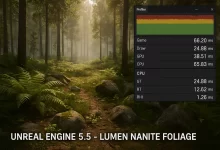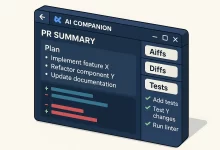Today, July 30, 2025, the Valley is buzzing about a clandestine operation rumored to be the centerpiece of Meta’s next big push: a full-blown Meta AI startup tucked away behind the main campus gates. I first caught wind of it during an off-the-record chat with a few engineers who’d been quietly recruited—each with tales of nine-figure sign-on bonuses and workspace access so restricted that standard badges simply don’t open the doors.
The whole initiative feels like a startup inside a corporate giant. Under Mark Zuckerberg’s direct sponsorship, this Meta AI startup team is operating with lean structures, rapid-cycle sprints, and minimal bureaucracy. Leadership has hand-picked researchers, many lured from OpenAI, Google DeepMind, and Anthropic, promising them the creative freedom to prototype radical ideas without the usual product-roadmap constraints.
One veteran AI scientist told me, “It’s the most exhilarating environment I’ve seen since the early days of deep learning—except this time, the resources are unlimited.” Desks bristle with prototype hardware, from custom TPU clusters to experimental neuromorphic chips. Whiteboards overflow with sketches of next-gen transformer architectures, multimodal vision-language models, and bespoke reinforcement-learning environments designed for real-world robotics.
What sets the Meta AI startup apart is its singular focus on “fundamental breakthroughs,” a phrase I heard repeatedly in a low-key briefing last week. Instead of mass-market features, the lab is tackling core challenges: true causal reasoning, on-device continual learning, and robust alignment techniques that could underpin safer, more reliable AI systems at scale.
To fuel that mission, Zuckerberg has quietly approved a multi-year budget exceeding $5 billion. Early expenditures include a sprawling new data center, custom silicon fabrication runs for prototype inference accelerators, and a global talent hunt that has already yielded dozens of PhD-level hires. It’s a stark departure from Meta’s usual model of licensing GPU time—it’s Meta building chips and software from the ground up.
In my own brief tour of the facility, I saw a mini-factory floor where engineers fine-tune wafer-scale modules. Nearby, another team was stress-testing models in a high-latency simulation grid that mirrors Internet-of-Things networks. Every corner of the space feels optimized for experimentation, with 24/7 access so teams can run experiments whenever inspiration strikes.
The secrecy extends to the lab’s name—it goes by Project Orion, a nod to celestial navigation and “charting new AI frontiers.” Public filings list Orion as a standalone LLC under Meta’s holding structure, ensuring Wall Street analysts and reporters can’t easily track its P&L or headcount. Even internal Meta employees refer to it simply as “the startup.”
Rumors swirl about early prototypes: a dialogue system that outperforms current chatbots on open-domain benchmarks, and a vision system capable of reasoning about physics in unfamiliar scenes. I’ve been promised a private demo next month—if it lives up to the hype, Project Orion could yield models that reshape Meta’s product roadmap, from immersive metaverse experiences to next-level moderation tools.
Of course, the tension with Meta’s core AI teams is real. Some veteran researchers worry that siloing innovation might lead to duplication or friction. Others see it as a healthy shake-up—injecting startup energy into a decades-old company can spark the very breakthroughs that stagnation threatens.
Regulators are watching, too. With privacy and safety already under scrutiny, Meta AI startup’s rapid advances will raise questions about how generated content is vetted and who bears responsibility for automated decisions. Zuckerberg’s team insists that safety protocols are baked in from day one: every prototype undergoes adversarial testing, bias audits, and red-teaming exercises before any external demo.
For investors, the line between hype and tangible progress is razor thin. Meta’s stock ticked up on the initial announcements, reflecting market faith that Project Orion will deliver competitive advantage. Yet the ultimate measure will be real-world applications and revenue synergies—no one doubts the lab’s ambition, but translating lab prototypes into scalable product features is the true test.
As I left the campus today, I couldn’t shake the feeling that we’re witnessing a defining moment in Meta’s evolution. The Meta AI startup model—an agile, heavily financed enclave within a corporate behemoth—could become the blueprint for how tech giants innovate in the AI era. And if Project Orion hits its milestones, we may soon look back at July 29, 2025, as the day Meta decided to level up from software and social networks to a new frontier of intelligent systems.

 FoxDoo Technology
FoxDoo Technology











